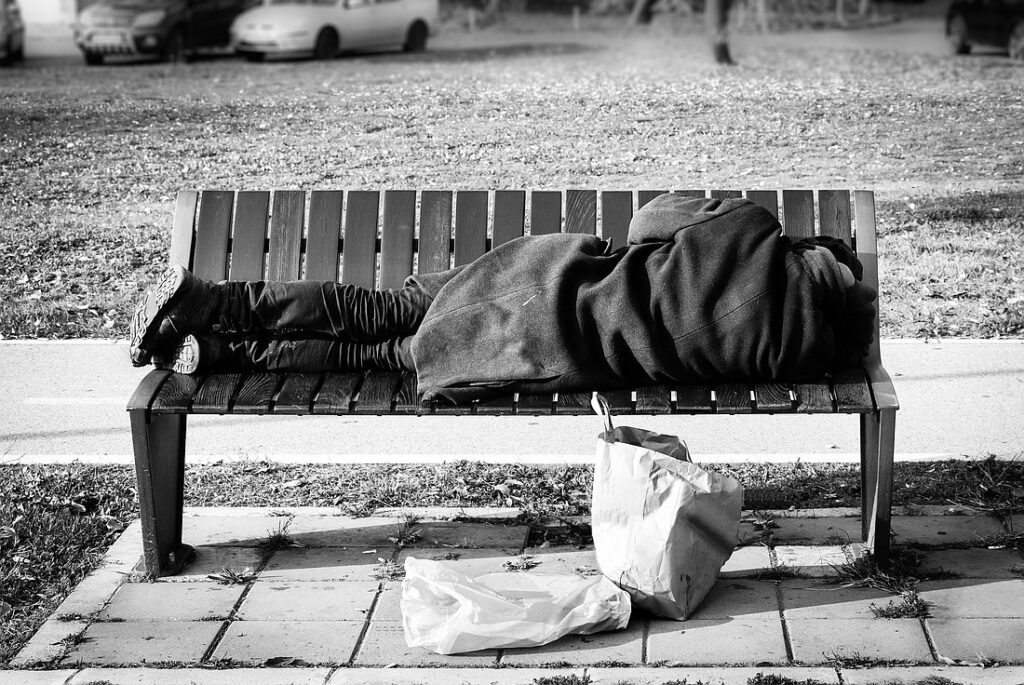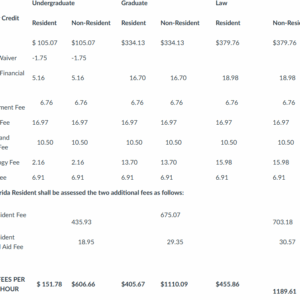Politics | October 21st, 2024
HB 1365: Florida’s New Law on Homelessness and Public Spaces
By: Raina Smith | Managing Editor

In March of this year, Florida’s Legislature introduced House Bill 1365 (HB 1365) in response to the state’s growing homelessness crisis. Known as the “Unauthorized Public Camping and Public Sleeping” bill, HB 1365 prohibits cities and counties in Florida from allowing individuals to sleep in public areas.
The law went into effect on October 1. Under HB 1365, counties must obtain approval for public camping sites by showing a lack of shelter space. The Department of Children and Families is responsible for inspecting these areas to ensure compliance with safety and operational standards.
Starting Jan. 1, residents, businesses and the state can take legal action if they believe their local government is not doing enough to address unauthorized camping.
Statewide Impacts
According to the 2024 Council on Homelessness Annual Report, Florida estimates it has over 31,000 homeless people, though advocates say it’s likely an undercount. Although this is a small percentage compared to the homeless populations in other states, large majorities in the Legislature, including Gov. Ron DeSantis, agreed that the law was needed.
“Florida will not allow homeless encampments to intrude on its citizens or undermine their quality of life like we see in states like New York and California,” DeSantis said in a news release in late March.
Florida’s population has surged in recent years, but so have housing costs, leaving many without stable shelter. Cities throughout the state have seen an alarming uptick in residents facing homelessness.
A report published by the National Alliance to End Homelessness stated that the Tampa-St. Petersburg metropolitan area has the highest rate of homelessness in the entire country.
Across the state, there are concerns about whether the bill provides enough funding and support for services like shelters, mental health care, and affordable housing—factors that are critical in addressing homelessness in the long term. Supporters of the bill argue that it promotes public safety and order, while critics assert that it criminalizes homelessness without addressing the root causes.
A Local Perspective
Tallahassee has seen an increase in homelessness in recent years, particularly around downtown and areas near Florida State University and Florida A&M University. According to the most recent Point In Time count by the Big Bend Continuum of Care, 801 individuals were identified as homeless in the Tallahassee area.
The Kearney Center, Tallahassee’s largest homeless shelter, is already working to ease the transition. In a recent interview with WFSU, Executive Director Sonya Wilson said they’ve added staff to prepare for a potential increase in demand. The center offers more than just shelter, providing case management, medical services, and meals, all while operating with limited resources and funding.
Some homeless residents in Tallahassee have expressed dissatisfaction with the bill, stating that it fails to provide the support they need.
“You can’t lock anybody up because they have to sleep on the sidewalk. Everybody’s not fortunate,” Madeiros Denesin, a homeless resident and frequent visitor of the Kearney Center, said. “That should be a no-go because this land is free.”
One key aspect of HB 1365 is enforcement. The Leon County Sheriff’s Office says the biggest challenge when dealing with the new provisions of HB 1365 will be the transitional period, during which awareness of the law and its consequences needs to be established.
“Before the Sheriff’s Office enforces any new provisions there will be a period of education to provide the public a transitional period,” Bobby Green, head of criminal investigations at the Leon County Sheriff’s Office, said.
What’s Next?
Moving forward, local governments must act quickly to implement HB 1365 effectively. The real challenge will be ensuring adequate support for homeless individuals, as the success of this law relies on balancing enforcement with access to essential services.





